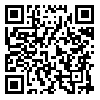Volume 9, Issue 2 (Summer 2022)
J Prevent Med 2022, 9(2): 116-131 |
Back to browse issues page
Download citation:
BibTeX | RIS | EndNote | Medlars | ProCite | Reference Manager | RefWorks
Send citation to:



BibTeX | RIS | EndNote | Medlars | ProCite | Reference Manager | RefWorks
Send citation to:
Azarpaykan A, Kazemi M, Molla Hosseini A. A Community-oriented Readiness Model (CRM) for Iranian Medical Universities in Providing Health Services to Earthquake Victims. J Prevent Med 2022; 9 (2) :116-131
URL: http://jpm.hums.ac.ir/article-1-572-en.html
URL: http://jpm.hums.ac.ir/article-1-572-en.html
1- Department of Crisis Management, Faculty of Management and Economics, Shahid Bahonar University, Kerman, Iran.
2- Department of Management and Economics, Faculty of Management and Economics, Shahid Bahonar University, Kerman, Iran.
2- Department of Management and Economics, Faculty of Management and Economics, Shahid Bahonar University, Kerman, Iran.
Abstract: (3062 Views)
Objective This study aims to design a local community-oriented readiness model (CRM) for Iranian medical universities in providing healthcare services to earthquake victims.
Methods This is an applied-exploratory study conducted at two phases: (1) Designing a CRM for Iranian medical universities in providing healthcare services to earthquake victims (Qualitative approach), (2) Fitting and assessing the CRM (Quantitative approach). In the qualitative phase, a panel of experts including university professors in crisis management, senior managers of medical universities, and consultants in the field of crisis management were considered as the study population. In this phase, a purposive sampling method was used and sampling continued until theoretical saturation was reached. In the quantitative phase, the study population consisted of senior, middle-level and operational managers of 50 medical universities (n=500). Using Krejcie and Morgan’s table, 217 were selected as samples by a cluster sampling method. Eleven interviews were conducted in this study. The data collection tool in the quantitative phase was a researcher-made questionnaire consisting of 40 items, which was distributed and collected online. In the quantitative phase, test the hypotheses were analyzed in LISREL software.
Results It was found that causal conditions had a positive and significant effect on the necessity of community-oriented readiness of medical universities in providing healthcare services at the time of earthquakes (t=0.46). The necessity of community-oriented readiness of universities of medical sciences had a positive and significant effect on the implementation of strategies in providing healthcare services at the time of earthquakes (t=0.61). Environmental conditions had a positive and significant effect on the implementation of strategies in providing healthcare services at the time of earthquakes (t=0.20). Moreover, the implementation of community-oriented strategies by medical universities had a positive and significant effect on reducing costs (t=0.55) and casualties (t=0.68), and on social capital capability (t=0.74).
Conclusion The presented CRM has a good fit and, therefore, can be suitable for evaluating the community-oriented readiness of medical universities in Iran for providing healthcare services to the earthquake victims.
Methods This is an applied-exploratory study conducted at two phases: (1) Designing a CRM for Iranian medical universities in providing healthcare services to earthquake victims (Qualitative approach), (2) Fitting and assessing the CRM (Quantitative approach). In the qualitative phase, a panel of experts including university professors in crisis management, senior managers of medical universities, and consultants in the field of crisis management were considered as the study population. In this phase, a purposive sampling method was used and sampling continued until theoretical saturation was reached. In the quantitative phase, the study population consisted of senior, middle-level and operational managers of 50 medical universities (n=500). Using Krejcie and Morgan’s table, 217 were selected as samples by a cluster sampling method. Eleven interviews were conducted in this study. The data collection tool in the quantitative phase was a researcher-made questionnaire consisting of 40 items, which was distributed and collected online. In the quantitative phase, test the hypotheses were analyzed in LISREL software.
Results It was found that causal conditions had a positive and significant effect on the necessity of community-oriented readiness of medical universities in providing healthcare services at the time of earthquakes (t=0.46). The necessity of community-oriented readiness of universities of medical sciences had a positive and significant effect on the implementation of strategies in providing healthcare services at the time of earthquakes (t=0.61). Environmental conditions had a positive and significant effect on the implementation of strategies in providing healthcare services at the time of earthquakes (t=0.20). Moreover, the implementation of community-oriented strategies by medical universities had a positive and significant effect on reducing costs (t=0.55) and casualties (t=0.68), and on social capital capability (t=0.74).
Conclusion The presented CRM has a good fit and, therefore, can be suitable for evaluating the community-oriented readiness of medical universities in Iran for providing healthcare services to the earthquake victims.
Keywords: Community-oriented preparedness, Earthquake, Crisis management, Medical universities, Healthcare services
Type of Study: Orginal |
Subject:
Special
Received: 2021/11/28 | Accepted: 2022/04/24 | Published: 2022/09/1
Received: 2021/11/28 | Accepted: 2022/04/24 | Published: 2022/09/1
Send email to the article author
| Rights and permissions | |
 |
This work is licensed under a Creative Commons Attribution-NonCommercial 4.0 International License. |








 hums.ac.ir
hums.ac.ir